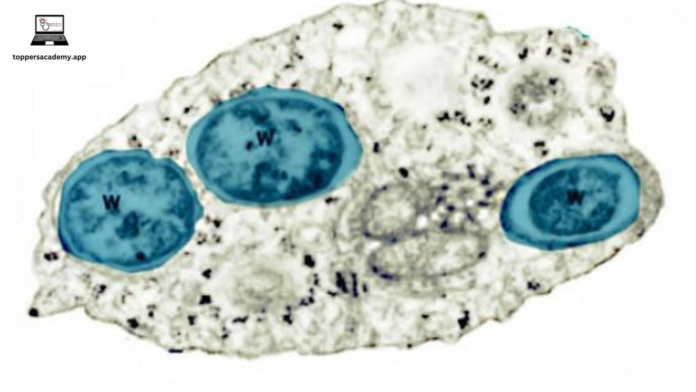
Chikungunya is a viral disease that is transmitted to humans by infected mosquitoes. The word “chikungunya” is derived from a word in the Kimakonde language, meaning “to become contorted,” which describes the stooped appearance of those affected with joint pain. The most common symptoms of chikungunya are fever and joint pain, but other symptoms can also occur.
Chikungunya is typically found in Africa, Asia, and the Indian subcontinent. However, in recent years, the disease has spread to Europe and the Americas. With the rise in global travel and changing climate patterns, the spread of chikungunya is a growing concern. Understanding the symptoms of chikungunya is important for early detection and treatment.
1. Fever
Fever is one of the first symptoms of chikungunya and can develop within a few days to a week after being bitten by an infected mosquito. The fever can range from mild to high, and it is often accompanied by other symptoms such as headache, muscle pain, and fatigue. In some cases, the fever can be persistent and last for several weeks.
If you have recently traveled to an area where chikungunya is prevalent and develop a fever, it is important to seek medical attention to rule out the possibility of chikungunya infection.
2. Joint Pain
Joint pain is a hallmark symptom of chikungunya and is often severe and debilitating. The pain can affect multiple joints, including the hands, wrists, knees, and ankles. The joints may also become swollen, tender, and warm to the touch. The joint pain can last for weeks to months, and in some cases, it can become chronic.
It is important to rest and avoid strenuous physical activity if you are experiencing joint pain, as this can help prevent further damage to the joints. Over-the-counter pain medications can also provide relief from the discomfort.
3. Rash
A rash is a common symptom of chikungunya and usually appears within a few days of the onset of fever. The rash can vary in appearance, but it is typically characterized by red, raised bumps that can be itchy and may spread to different parts of the body. The rash is usually not severe and tends to go away on its own within a week or two.
If you develop a rash along with fever and joint pain, it is important to see a healthcare provider for an accurate diagnosis and appropriate treatment.
4. Muscle Pain
In addition to joint pain, chikungunya can also cause muscle pain, which can be widespread and affect multiple muscles throughout the body. The muscle pain can be intense and make it difficult to perform everyday tasks. Rest, gentle stretching, and over-the-counter pain medications can help alleviate muscle pain associated with chikungunya.
If the muscle pain is severe and persistent, it is important to seek medical attention to rule out other possible causes and receive appropriate treatment.
5. Headache
Headache is a common symptom of chikungunya and can be accompanied by other symptoms such as fever, muscle pain, and fatigue. The headache can range from mild to severe and may be constant or come and go. Over-the-counter pain medications and rest can help relieve headache associated with chikungunya.
If you experience a severe or persistent headache along with other symptoms of chikungunya, it is important to seek medical attention for proper evaluation and management.
6. Fatigue
Fatigue is a common symptom of chikungunya and can be overwhelming, making it difficult to engage in daily activities. Rest, proper nutrition, and staying hydrated can help combat fatigue associated with chikungunya. It is important to listen to your body and give yourself the time and space to recover from the illness.
If you experience persistent fatigue despite rest and self-care, it is important to seek medical attention to address underlying causes and receive appropriate treatment.
7. Nausea and Vomiting
Nausea and vomiting can occur in some cases of chikungunya, along with other symptoms such as fever, joint pain, and headache. It is important to stay hydrated and consume easy-to-digest foods if you experience nausea and vomiting. If these symptoms are severe or persistent, it is important to seek medical care for evaluation and management.
8. Swollen Lymph Nodes
Swollen lymph nodes can be a sign of chikungunya, particularly in the area where the mosquito bite occurred. The lymph nodes may become tender and enlarged, and they may feel like small, round bumps beneath the skin. If you notice swollen lymph nodes along with other symptoms of chikungunya, it is important to seek medical attention for an accurate diagnosis and appropriate treatment.
9. Conjunctivitis
Conjunctivitis, or redness and inflammation of the eyes, can occur in some cases of chikungunya. In addition to redness, the eyes may also feel itchy, watery, and sensitive to light. Over-the-counter eye drops and cold compresses can provide relief from the discomfort of conjunctivitis. If you experience severe or persistent conjunctivitis, it is important to see a healthcare provider for evaluation and management.
10. Neurological Symptoms
In rare cases, chikungunya can lead to neurological symptoms such as confusion, dizziness, and seizures. If you experience any neurological symptoms along with other symptoms of chikungunya, it is important to seek immediate medical attention for proper evaluation and management.

















